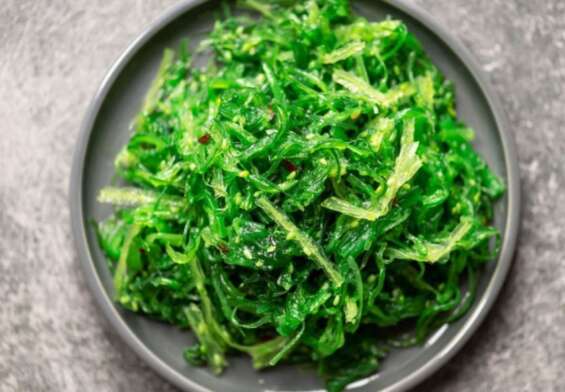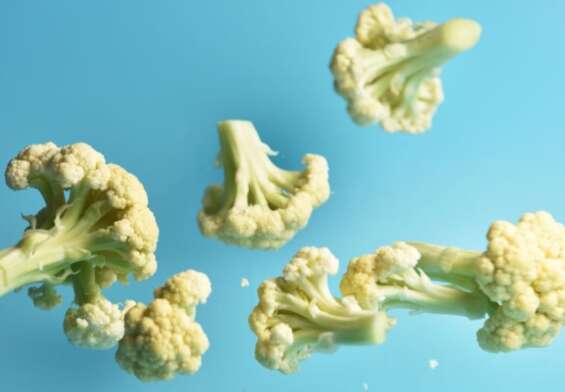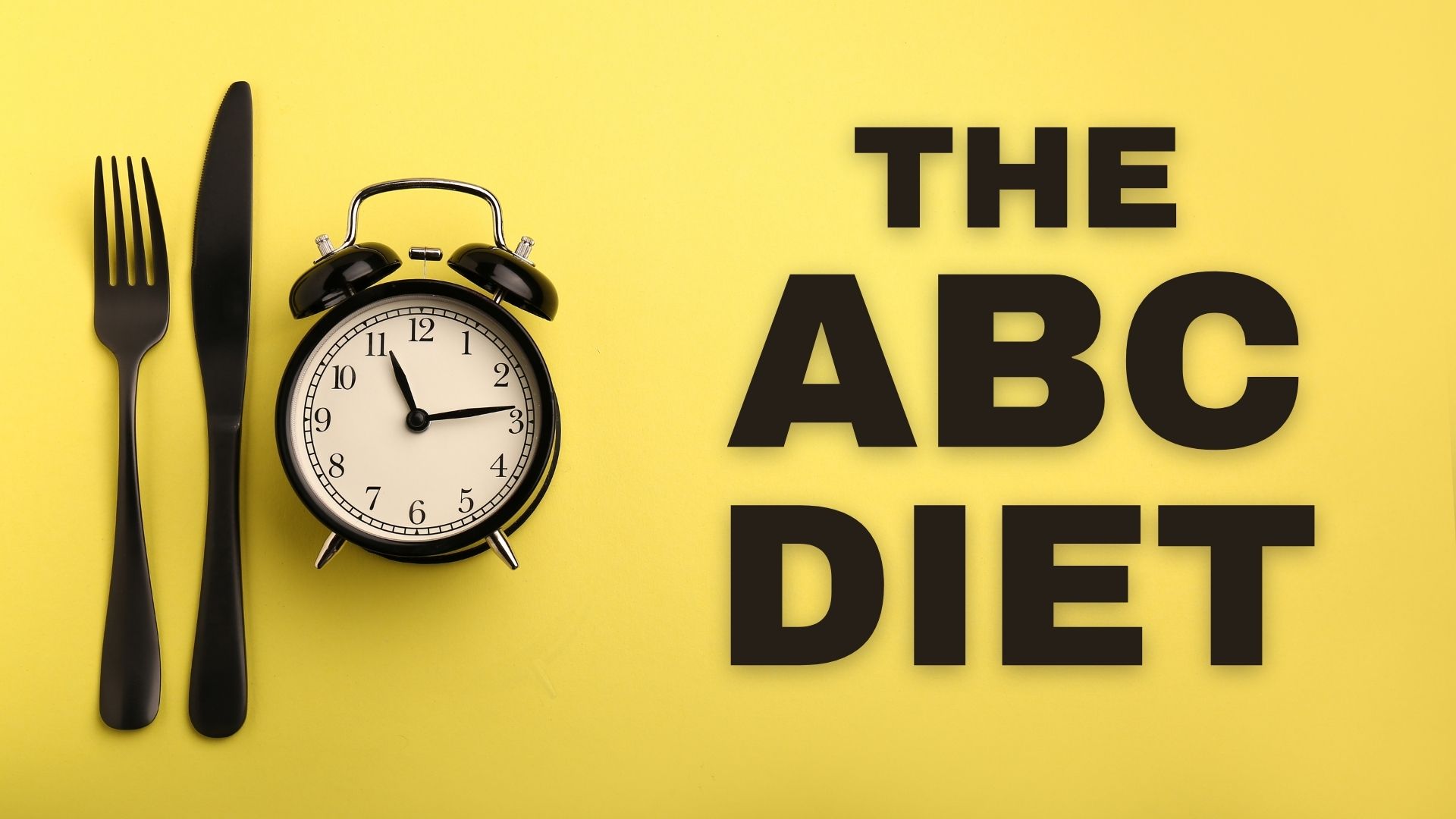
The Planetary Health Diet: Eat for Your Health and Planet’s
The Planetary Health Diet is an evidence-based dietary pattern that has been designed to promote optimal health and longevity while reducing the environmental impact of our food system. It is a diet that emphasizes whole foods and plant-based proteins, while limiting added sugars, processed foods and animal products. The goal is to provide a healthy, sustainable and affordable dietary pattern that can be adopted by individuals and communities around the world. The diet has been designed to ensure that it meets global dietary recommendations, while also reducing the environmental impacts of food production. By following the Planetary Health Diet, individuals can help to reduce their impact on the planet while improving their own health and well-being.
How the Planetary Health Diet Can Be Used to Combat Climate Change
If you want to fight climate change, forget about electric cars and solar panels – the most powerful weapon may be the Planetary Health Diet! This revolutionary new way of eating has been proven to reduce greenhouse gas emissions and improve global health, all while tasting delicious.
From the comfort of your kitchen, you can join the fight against climate change and improve your health at the same time. The Planetary Health Diet is a balanced mix of plant-based foods and sustainable animal-sourced foods. It includes plenty of fruits and vegetables, whole grains, legumes, nuts, and seeds – all of which are packed with nutrients and can help reduce your intake of unhealthy fats, refined sugars, and processed foods.
The Planetary Health Diet also calls for limiting your intake of red meat, which is one of the largest contributors to greenhouse gas emissions. Instead, opt for leaner sources of animal proteins like fish and poultry, which have a significantly lower environmental impact.
And don’t worry – you don’t have to sacrifice taste for sustainability. With plenty of plant-based proteins and fresh ingredients, the Planetary Health Diet offers a variety of flavors and textures that are sure to tantalize your taste buds.
Plus, you can feel good about your food choices knowing that you’re helping to reduce climate change. So if you’re looking for a way to make a difference, try out the Planetary Health Diet today!
Exploring the Benefits of Eating a More Plant-Based Diet
Ready to make a change in your diet and start eating more plant-based food? Then you’re in luck! Not only are plant-based foods nutritious and delicious, but they also offer some serious benefits for your health. Here are just a few reasons why it’s worth taking the plunge and switching to a plant-based diet:
You’ll have more energy. Going plant-based means you’ll be getting all the essential vitamins, minerals, and antioxidants that your body needs to stay energized throughout the day. So say goodbye to afternoon slumps and hello to increased energy levels from all those yummy plant-based meals!
You’ll be saving animals. When you choose to eat more plant-based foods, you’ll be helping to reduce the demand for animal products, which can mean a better quality of life for animals everywhere. So you can feel great about not only looking after your own health, but also helping to protect animals in the process.
You’ll be reducing your risk of disease. Eating a plant-based diet has been linked to a lower risk of heart disease, diabetes, and even certain types of cancer. So not only will you be eating healthier, but you’ll also be reducing your risk of developing serious illnesses down the road.
You’ll be helping to save the planet. Plant-based diets have a smaller environmental footprint than diets that include animal products. So you can feel good about knowing that your food choices are helping to reduce your carbon footprint and make the planet a better place.
So there you have it! Now that you know the benefits of eating a plant-based diet, what are you waiting for? Start making the switch to a more plant-based diet today – your body and the planet will thank you for it!
How to Incorporate the Planetary Health Diet Into Your Life
Are you dreaming of a healthier lifestyle but have no idea where to start? Look no further than the Planetary Health Diet! This diet was developed by the EAT-Lancet Commission to guarantee optimal nutrition while protecting planet Earth. Here’s how to incorporate it into your life!
Eat More Plants. The Planetary Health Diet calls for a plant-based diet that is rich in fruits, vegetables, whole grains, legumes, nuts, and seeds. Eating more plants means you’ll get a variety of vitamins and minerals, as well as fiber and antioxidants. Plus, it’s better for the environment!
Be Mindful of Your Portions. This diet recommends consuming only 2,500 calories per day, with half of that coming from plant-based foods. That means you’ll need to be mindful of your portions if you want to stick to the plan.
Cut Down on Animal Products. Animal products should make up no more than a quarter of your daily caloric intake. This means reducing your consumption of red meat, poultry, eggs, and dairy products. You can still enjoy these foods in moderation, but try to focus on plant-based proteins instead.
Enjoy Healthy Fats. Healthy fats are an important part of the Planetary Health Diet, so don’t be afraid to incorporate them into your meals. Olive oil, nuts, and avocados are all good sources of healthy fats that can help you stay feeling full and satisfied.
Indulge in Treats. The Planetary Health Diet doesn’t mean you have to give up all of your favorite treats. In fact, the diet recommends indulging in small amounts of sugar and saturated fat from time to time. Just remember to keep it in moderation!
By following these five tips, you can easily incorporate the Planetary Health Diet into your life. It may take some time to get used to, but with a little patience and dedication, you’ll be well on your way to a healthier, happier lifestyle!
The Role of Sustainable and Regenerative Farming in the Planetary Health Diet
It’s time to bring sustainable and regenerative farming practices into the spotlight! After all, they are key components of the Planetary Health Diet, and they can help us save the planet.
So, how can sustainable and regenerative farming practices help save the planet? Well, for starters, sustainable and regenerative farming can help us keep our soils healthy and productive, which will help us produce more nutritious food. It also reduces our water usage and cuts down on pollutants like fertilizer runoff. Plus, these practices can help us increase biodiversity and wildlife habitat.
So, how can we make sure we’re doing our part to support sustainable and regenerative farming practices? Well, for one, we can support farmers who practice these methods by buying their products. We can also encourage our local food producers to adopt sustainable and regenerative farming practices.
But that’s not all! We can also take it a step further and get more involved in sustainable and regenerative farming. We could volunteer at a local farm or even start a small garden of our own. This way, we’re not only supporting sustainable and regenerative farming, but we’re also getting our hands dirty and learning more about the process.
And if all else fails, we can always get creative. After all, sustainable and regenerative farming can be fun! We can try out new recipes with locally-sourced ingredients, plant a rooftop garden, or even start a compost bin. All of these activities are great ways to get involved and support sustainable and regenerative farming.
So, what are you waiting for? Let’s get out there and start making a difference! Sustainable and regenerative farming practices are essential for the Planetary Health Diet, and they can help us save the planet.
The Impact of Eating Local Foods on Planetary Health
Are you ready to take your health to the next level and help save the planet while you’re at it? Eating local foods can do just that! Here’s how:
You’ll get fresher, tastier food. Local foods are picked at peak ripeness and are usually smaller and more flavorful than their mass-produced counterparts. You’ll never have to suffer through a flavorless, mushy apple again!
Plus, you’ll be supporting the local economy. You’ll be helping to keep those small farmers in business, and those dollars spent on local foods are kept in the community.
You’ll also be reducing your carbon footprint. Eating local foods means fewer miles traveled to get to your plate. It also reduces energy costs associated with food production and transportation.
And finally, eating local foods is beneficial for the environment. Eating local foods means fewer chemicals and pesticides used in their production, which keeps them from getting into the groundwater and contaminating our drinking water.
So, if you’re looking for a way to improve your health and help the planet, eating local foods is a great place to start! Get out there, explore your local farmers’ markets, and have some fun while you’re saving the planet!
Exploring the Health Benefits of Eating a More Sustainable Diet
Are you looking to eat healthier and help save the planet at the same time? Then you should consider switching to a more sustainable diet! Eating a sustainable diet has so many benefits, you’ll be wondering why you didn’t make the switch sooner.
A sustainable diet is one that is produced in a way that is good for the environment and that doesn’t harm animals. So, instead of eating foods that are heavily processed and full of chemicals, you’ll be eating fresh, organic fruits and vegetables. You’ll also be eating foods that are locally-sourced and don’t rely on long-distance transportation or large-scale industrial production.
Not only is a sustainable diet great for the planet, it’s also really good for your health. By eating foods that are fresh and unprocessed, you’ll be getting plenty of vitamins, minerals, and antioxidants that your body needs to stay healthy. You’ll also be avoiding unhealthy additives and preservatives that can be found in processed foods.
In addition to the health benefits of eating a sustainable diet, you’ll also be helping to support local farmers and businesses. By buying local produce, you’ll be helping to reduce the environmental impact of transporting food long distances and you’ll also be boosting the local economy.
So, if you’re looking to eat healthier and help the environment at the same time, then you should definitely consider switching to a more sustainable diet! Not only will you be helping the planet, you’ll also be reaping all the health benefits that come with eating fresh, organic foods. So what are you waiting for? Make the switch today and get ready to enjoy all the health benefits and feel-good vibes that come with eating a more sustainable diet!
The Benefits of Eating a Diet Rich in Whole Foods
Do you ever feel like you’re stuck in an endless cycle of unhealthy eating habits? Sure, that slice of pizza or a giant bowl of ice cream may bring momentary joy, but soon that temporary pleasure fades away and you’re left feeling guilty and sluggish. Well, it’s time to break the cycle of unhealthy eating and get your body on a healthier path!
Eating a diet rich in whole foods is one of the best ways to reach your health and wellness goals. You may be wondering, “What are whole foods?” Simply put, whole foods are foods that are whole – or unprocessed – and as close to their natural state as possible. This means foods like fruits, vegetables, whole grains, legumes, nuts, and seeds are all within the realm of whole foods.
So why should you make an effort to incorporate whole foods into your diet? For starters, whole foods are packed with essential vitamins, minerals, and fiber. All of these nutrients are important for maintaining a healthy body and immune system. Furthermore, whole foods contain antioxidants that can help protect your cells from damage caused by free radicals.
Another great benefit of eating a diet rich in whole foods is that it can help you to achieve and maintain a healthy weight. Compared to processed foods, whole foods are lower in calories but higher in nutrients, so they can help keep you feeling fuller longer. Eating a diet rich in whole foods can also help you to reduce your risk of developing certain medical conditions, such as heart disease, diabetes, and certain cancers.
And that’s not all! Eating a diet rich in whole foods can also help you to save money. Not only are whole foods usually more affordable than processed foods, but they also last longer. And since these foods are unprocessed, they don’t contain any added sugars, preservatives, or artificial ingredients that can be expensive.
So don’t hesitate to make the switch to a diet rich in whole foods. Not only can it help you to achieve your health and wellness goals, but it can also save you money in the long run. Plus, it’s a lot more fun than eating boring salads all day!
What Are the Impacts of Eating a Diet High in Processed Foods
Are you ready to find out the impacts of a diet high in processed foods? These impacts can range from hilarious to horrifying so buckle up and get ready for the ride!
First things first, if you eat a diet high in processed foods you may find yourself in the unfortunate position of becoming a walking snack food. From salty chips to sugary treats, your body will be begging you for more of your favorite processed snacks throughout the day.
Next, you may also find yourself becoming increasingly lazy and lethargic as your body struggles to process all of the unhealthy ingredients in processed foods. This can lead to a lack of energy and motivation to do anything other than sit and stare at the TV.
Finally, if you really want to take it to the next level, you can also expect to experience some serious digestive issues. From bloating and gas to constipation and diarrhea, your body will be having a hard time trying to digest all of the preservatives and artificial flavors in processed foods.
So there you have it – the impacts of eating a diet high in processed foods. While it may be tempting to indulge in the convenience of these snacks, it’s important to remember that the short-term pleasure may not be worth the long-term health risks.
The Impact of Eating a Diet Low in Animal Products
Are you considering making the switch to a plant-based diet? Well, you’ll be in for a surprise if you do, because the impact of eating a diet low in animal products will likely be quite…dramatic!
For starters, you’ll probably find yourself having to get creative with your meals. Goodbye, steak and potatoes—hello, tempeh tacos and jackfruit burritos! And let’s not forget the inevitable meat cravings. But don’t worry—a quick trip to your local vegan grocery store will give you plenty of vegan alternatives to satisfy those cravings.
In addition to the new and exciting food options available to you, you’ll also be doing something good for the planet. A diet low in animal products is much more sustainable than a traditional meat-based diet, since it requires fewer resources to produce. Plus, you’ll be doing your part to reduce animal suffering, since the majority of animal products come from factory farms.
Finally, there are the health benefits. Studies have shown that a diet low in animal products is linked to lower cholesterol levels, lower blood pressure, and lower risk of heart disease and diabetes. And that’s not all—you’ll likely find yourself with more energy and better overall health.
So, if you’re looking to make a positive change in your life, why not give plant-based eating a try? Sure, it may take some getting used to, but the benefits are worth it!
Exploring Strategies for Reducing Food Waste and Its Impact on Planetary Health
Let’s face it – food waste is no laughing matter. But instead of feeling guilty every time you throw out leftovers, why not have fun finding solutions to reduce food waste and its impact on planetary health? Here are a few ideas to get you started:
Get creative in the kitchen! Instead of throwing out those leftover veggies, try whipping up a delicious stir-fry. Or, if you’re feeling adventurous, use up all of your produce and make a veggie-packed soup.
Shop smarter. When grocery shopping, plan your meals for the week and only buy what you need. This will help you avoid buying too much and having to throw food away.
Store food properly. Proper storage helps keep food fresher for longer. Be sure to check expiration dates and follow storage guidelines for each food item carefully.
Donate. If you find yourself with too much food, consider donating it to a local food bank or shelter. This will help reduce food waste and provide meals to those in need.
Compost. Composting is a great way to reduce food waste and create nutrient-rich soil. So, if you have food scraps that you can’t use, start composting!
It’s time to get serious about reducing food waste and its impact on planetary health. But that doesn’t mean you can’t have fun doing it! With a few simple strategies, you can reduce food waste and help make the planet a healthier place.
How to Combat Nutritional Deficiencies in the Planetary Health Diet
If you’re looking to follow the Planetary Health Diet, you’re probably aware that it can be difficult to get all the necessary nutrients and minerals your body needs. But don’t worry – we’ve got you covered! Here are some humorous tips to combat nutritional deficiencies while you’re following the Planetary Health Diet.
Eat your greens – and then some! Eating plenty of green, leafy vegetables is a great way to get in some essential vitamins and minerals. Try adding a salad to your lunch every day, or adding spinach, kale, or broccoli to your evening meal.
Don’t be afraid of the fruit bowl. Fruits are a great source of vitamins and minerals, so don’t be afraid to add a few to your diet. Apples, oranges, and bananas are all great options. And if you’re feeling adventurous, try out some tropical fruits like mangoes or pineapples.
Get a little nutty. Nuts are an excellent source of protein, healthy fats, and minerals, so make sure to include them in your diet. Almonds, cashews, and walnuts are all good choices.
Give legumes a chance. Legumes like beans, lentils, and peas are packed with nutrients and are a great way to get your daily dose of protein. Try adding them to salads or soups for an extra boost of nutrition.
Keep your gut healthy. A healthy gut is essential for absorbing all the essential vitamins and minerals you need to stay healthy. Make sure to include plenty of probiotic-rich foods like yogurt, kefir, and sauerkraut in your diet.
Following the Planetary Health Diet doesn’t have to be boring or deficient in essential nutrients. With these tips, you can enjoy all the benefits of the diet without sacrificing your nutrient intake. Bon appetit!
Conclusion
The Planetary Health Diet is a promising approach to improving global health and reducing the environmental footprint of food production. It has been developed to provide a balanced diet that is both nutritious and environmentally sustainable. By ensuring that all populations have access to adequate nutrition while minimizing the negative impacts of food production, the Planetary Health Diet is an important step towards a healthier, more sustainable future.











